A guide to all the world elections taking place in 2024, democracy's biggest year
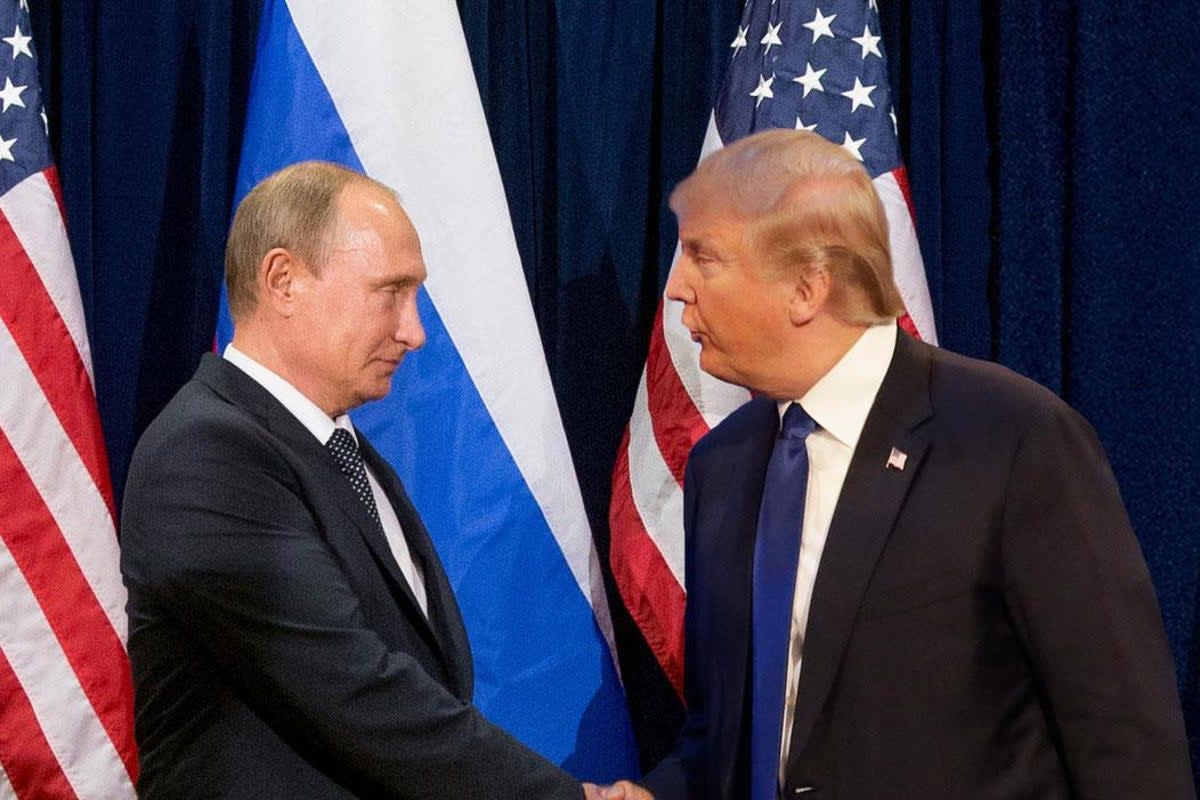
In 2024, more than 40 countries — accounting for over 40 per cent of the world — will hold national elections, making it the largest year for global democracy.
That amounts to more than 1.5 billion people, with the results helping to determine the trajectory of the 21st-century world.
Eight of the 10 most populous countries in the world — Bangladesh, Brazil, India, Indonesia, Mexico, Pakistan, Russia, and the United States — will hold elections in 2024.
Ukraine is also set to do likewise — despite the ongoing war.
Throughout Europe, the far-right movement has surged in recent months amid the region's struggles with immigration challenges, sluggish economic growth, and soaring inflation.
Meanwhile, the UK and European Union are also scheduled to hold elections for their respective parliaments.
Many elections are not free and fair and will have little meaningful impact on governments. In 2023, global freedom declined for the 17th consecutive year, the independent, US-based watchdog Freedom House said in its yearly report.
However, the report also said that even though 35 countries experienced declines in political rights and freedoms, 34 had overall gains. “The effects of corruption and a focus on political control at the expense of competence exposed the limits of the authoritarian models offered by Beijing, Moscow, Caracas, or Tehran," it said.
Here is a calendar of the elections taking place next year, and what their outcomes could mean.
January
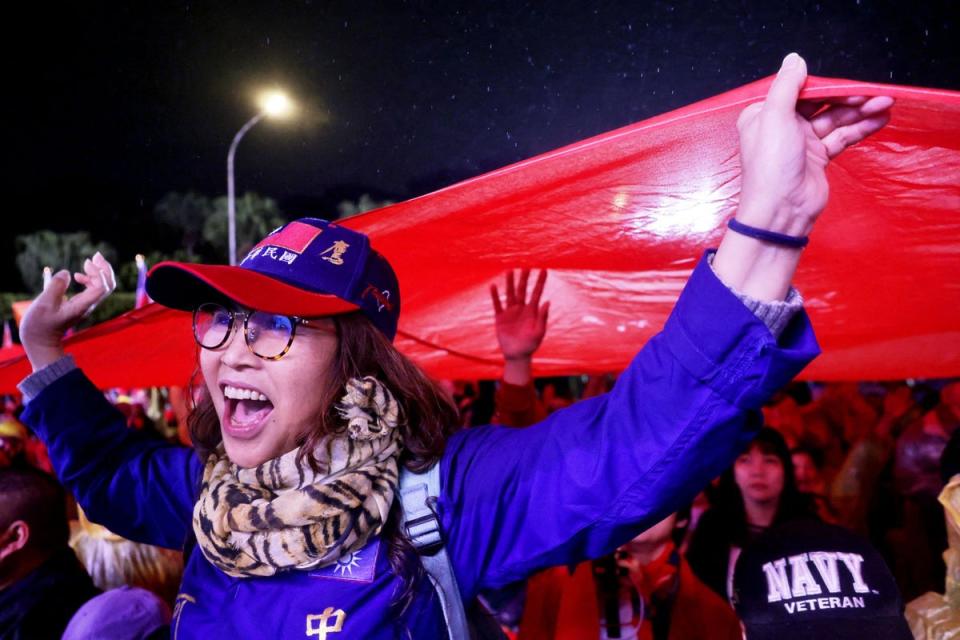
Taiwan
Winner: William Lai, Democratic Progressive Party (DPP)
Taiwan rang in the new year with an election to decide its next president, as well as its legislature, on January 13. William Lai of the Democratic Progressive Party secured a decisive victory, promising to protect Taiwan from “threats and intimidation” by China, in a result that will infuriate the communist government of the mainland and increase military and diplomatic tension across the Taiwan Strait. How the self-ruling island deals with China was a central theme of the campaign — Communist China has never ruled there, but still claims it as its territory and refuses to rule out a military attack, threatening to “reunify” the island by force. Lai’s victory marks the first time in the island’s 28-year democratic history that a party has won the presidency in three successive elections.
Finland
Winner: Conservative former Prime Minister Alexander Stubb, National Coalition Party
Finland’s conservative former Prime Minister Alexander Stubb won the country’s presidential election after a runoff, in the country’s first election since joining NATO. He secured 51.6 per cent of the vote, while his Green Party rival Pekka Haavisto, the former foreign minister, had 48.4 per cent. Stubb takes a hardline approach to Finland’s neighbouring country Russia. The Finnish president's authority has diminished over the past 40 years but the country's prominence has grown since it joined NATO in response to Russia's invasion of Ukraine.
Bangladesh
Winner: Incumbent Sheikh Hasina, the Awami League
Bangladesh’s Prime Minister Sheikh Hasina was re-elected for a record fourth straight term on January 8, in a controversial election. The result came after mass arrests of opposition Bangladesh National Party (BNP) leaders and supporters, and the party alleged the election was a sham. The United States shares the view that the elections were not free and fair, with the State Department adding that Washington was concerned by reports of vote irregularities and condemned violence that took place.
When Hasina was re-elected in 2018, her party’s landslide win was tainted by violence and allegations of vote-rigging. Since October 2023, after a rally of the opposition Bangladesh Nationalist Party (BNP) was forcibly dispersed and opposition leaders were arrested, the country has fallen into a spiral of violence.
Bhutan
Winner: Former Prime Minister Tshering Tobgay, People’s Democratic Party
Former Prime Minister Tshering Tobgay’s People’s Democratic Party (PDP) won the most seats in Bhutan’s parliamentary election on January 9, after a campaign dominated by the economic crisis in the small Himalayan nation.
Bhutan’s parliamentary election was the fourth to be held since democracy was established in the former absolute monarchy in 2008. Bhutan has long inspired unorthodox economic thinkers by counting "gross national happiness" as its main indicator of growth rather than just GDP. Both parties in the election are committed to a constitutionally enshrined philosophy of a government that measures its success by the “happiness and wellbeing of the people”.
The Comoros
Winner: Incumbent Azali Assoumani, Convention for the Renewal of the Comoros
Comoros President Azali Assoumani was been re-elected for a fourth term on January 14, in a poll disputed by the opposition as "fraudulent". The former military officer and current chairperson of the African Union secured the win with 63 per cent of the vote. However, turnout was low amid an opposition boycott – just 16 per cent of the population took part.
After the results were announced, security forces clashed with protesters in several parts of the capital, Moroni. The house of a former minister was set on fire, while demonstrators blocked roads, the AFP news agency reported. The Comoros, officially known as the Union of the Comoros, is a small island nation located in the Indian Ocean, off the eastern coast of Africa.
Tuvalu
Winner: Former prime minister Seve Paeniu, Independent
The pro-Taiwan leader of Tuvalu, Kausea Natano, lost his seat in the country’s election on January 27, dealing a potential blow to Taipei’s efforts to hold onto its decreasing number of diplomatic allies. Tuvalu, home to just 11,200 people, is one of only 12 states that formally recognises Taiwan. Natano had pledged to maintain ties with the self-governing island that Beijing claims as its territory.
The vote was closely watched by Taiwan, China and the US, amid concern that the tiny Pacific island nation could be set to switch diplomatic recognition to Beijing. China does not recognise countries that have formal relations with Taiwan, which it has threatened to “reunify” with the Chinese mainland by force.
February
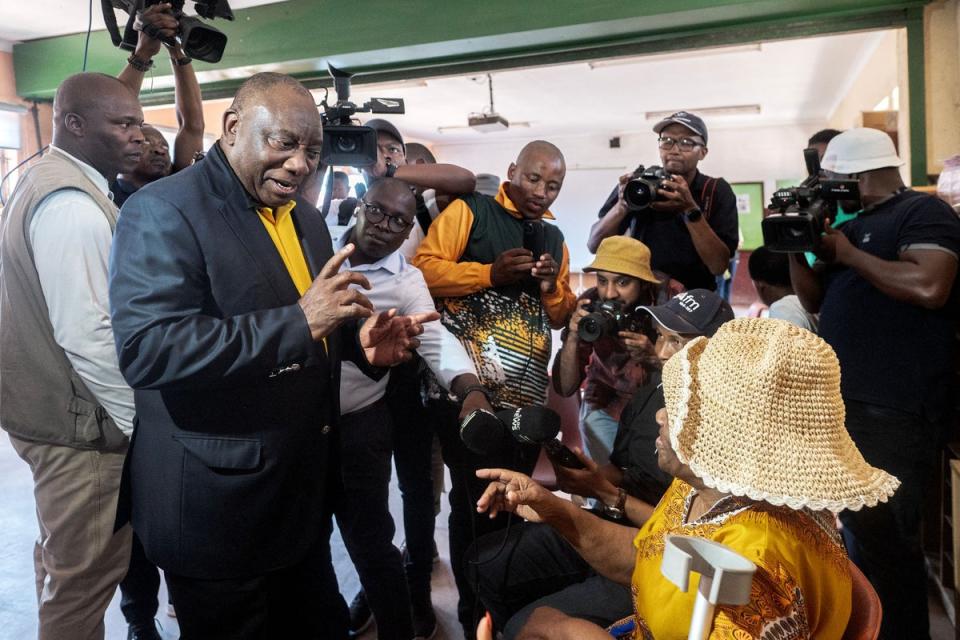
Pakistan
Winner: Independent candidates affiliated with former prime minister Imran Khan’s Pakistan Tehreek-e-Insaf (PTI) party
Pakistan’s 2024 general election results were announced on February 11, with independent candidates affiliated with former prime minister Imran Khan’s Pakistan Tehreek-e-Insaf (PTI) party winning the most seats.
This was a stunning victory for Mr Khan given the hurdles he has faced. His party is effectively banned, his speeches are blocked from being broadcast on television, and he faces at least 14 years in prison. Given that the PTI was barred from taking part in the election, most of its candidates stood as independents. The PTI has made allegations of systematic fraud and vote rigging, claiming that it has actually won more than 150 seats.
After the results were announced the PTI organised protests outside election commission offices in constituencies across the country. In Lahore, hundreds of riot police broke up the protests and in some cases charged at peaceful demonstrators before detaining them. In Rawalpindi city, south of the capital Islamabad, police fired tear gas to disperse dozens of protesters.
Azerbaijan
Winner: Incumbent Ilham Aliyev, New Azerbaijan Party
Azerbaijan’s President Ilham Aliyev easily won another seven-year term in a vote that election watchers have claimed was contested without real political opposition. The 61-year-old autocrat has been in power for more than two decades. The vote was initially set for 2025, but Aliyev called a snap election after a surge in popularity since the recent military conquest of the entirety of Nagorno-Karabakh, which ended centuries of Armenian habitation in the region.
Aliyev’s time in power has been marked by the introduction of increasingly authoritarian laws suppressing political debate, as well as arrests of opposition figures and independent journalists, including in the run-up to the election. Azerbaijan’s two main opposition parties, Musavat and the People’s Front of Azerbaijan, did not take part in the vote.
Indonesia
Indonesia headed to the polls on February 14 for the world’s largest single-day election to elect a president and vice president, along with nearly 20,000 representatives to national, provincial, and district parliaments from a pool of a quarter-million candidates. While the votes are still being counted at the time of writing, the most populous country in South-East Asia, the centre-left Indonesian Democratic Party of Struggle (PDIP) is likely to win the legislative and presidential elections.
Belarus
Russia's staunch ally Belarus is preparing for its first elections since 2020, when demonstrations erupted over the results of the presidential vote. President Alexander Lukashenko’s security forces imposed an unprecedented crackdown on Belarusian society. Thousands of Lukashenko’s opponents fled to the country or were sent to prison, and opposition parties have been banned.
Dominican Republic
The Dominican Republic in the Caribbean will hold general elections in 2024. It will also hold municipal elections on February 18 and presidential and congressional elections on May 19.
March
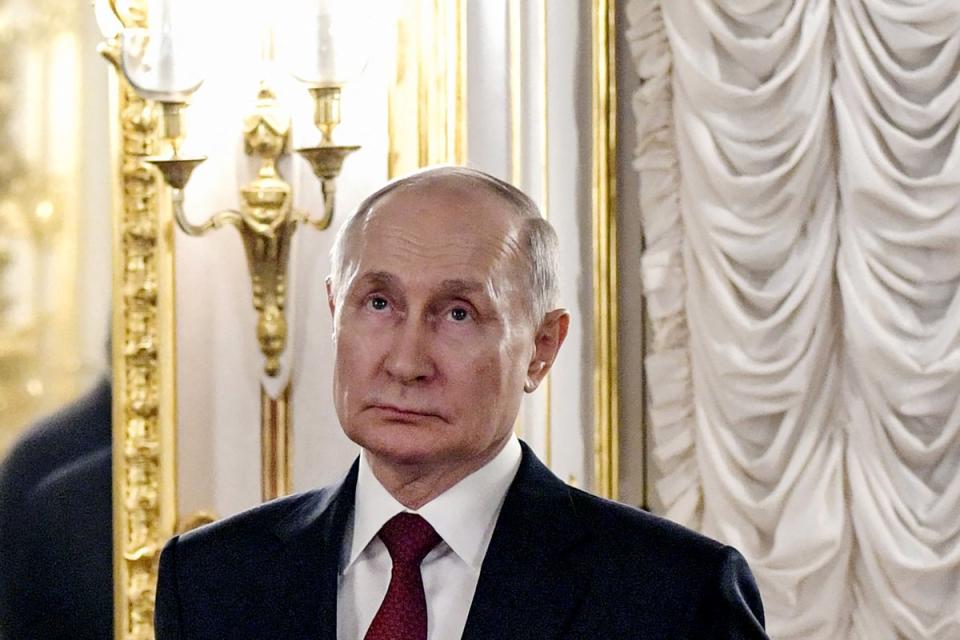
Iran
The 2024 elections in Iran will be the first since nationwide protests following the death of Mahsa Amini in September 2022. She was an Iranian Kurd aged 22, who died in police custody following her arrest over an alleged breach of the Islamic Republic’s strict dress code for women.
Iran's current parliament, which was formed in 2020, has been dominated by conservatives. Officials have announced that more than 25 per cent of opposition candidates for the 2024 contest have already been disqualified.
Many Iranians are expected to boycott the vote. The country has been mired in a severe economic crisis since former US president Donald Trump withdrew the US from a nuclear deal and reinstated tough sanctions. The currency’s value has nosedived, destroying many Iranians’ life savings and driving up the cost of living.
Russia
While Russians will cast their ballots in March 2024, there is little question about what the outcome of the election will be. President Vladimir Putin has dominated Russia’s political scene for the past two decades, jailing prominent opposition politicians who could challenge him on the ballot.
He has won previous elections by a landslide, but independent watchdogs say they were marred by widespread fraud. Putin's spokesman brazenly told the New York Times that the “presidential election is not really democracy, it is costly bureaucracy” and that his boss will be re-elected "with more than 90 per cent of the vote”.
Helped by near-total Kremlin domination of Russia's media, Putin's personal approval rating remains high after nearly 25 years in power, despite his striking failure to capture Ukraine in one fell swoop when he launched the invasion in February 2022.
Ukraine
For months, Ukraine has been mired in a fierce debate over whether the country should hold a presidential election in March 2024 as originally scheduled. President Volodymyr Zelensky’s five-year term is up, but all elections are prohibited under the country’s martial law. This was imposed after Russia launched its full-scale invasion.
In November 2023, Zelensky said that it was “not the right time” for elections. Many in the country agreed, fearing a vote could distract the country from its war efforts. But there have been some calls, including from US Republican Senator Lindsey Graham, for votes to proceed even if the war does not end, as evidence that the country remains a healthy democracy.
Portugal
Portugal will hold a snap parliamentary election — its second in as many years — on March 10, President Marcelo Rebelo de Sousa has announced. This followed the abrupt resignation of the Socialist prime minister António Costa in November amid a corruption investigation. Costa has led Portugal since 2015 and won a landslide election in only 2022.
El Salvador
The upcoming election of El Salvador, a country in Central America, is already causing controversy. In October 2023, President Nayib Bukele registered himself as his party’s candidate to seek re-election in the country’s presidential vote in 2023. However, El Salvador's constitution prohibits such a move. According to several polls, Bukele is set to be re-elected by a wide margin, given that he is popular for his strict clampdown on the country’s powerful street gangs.
April
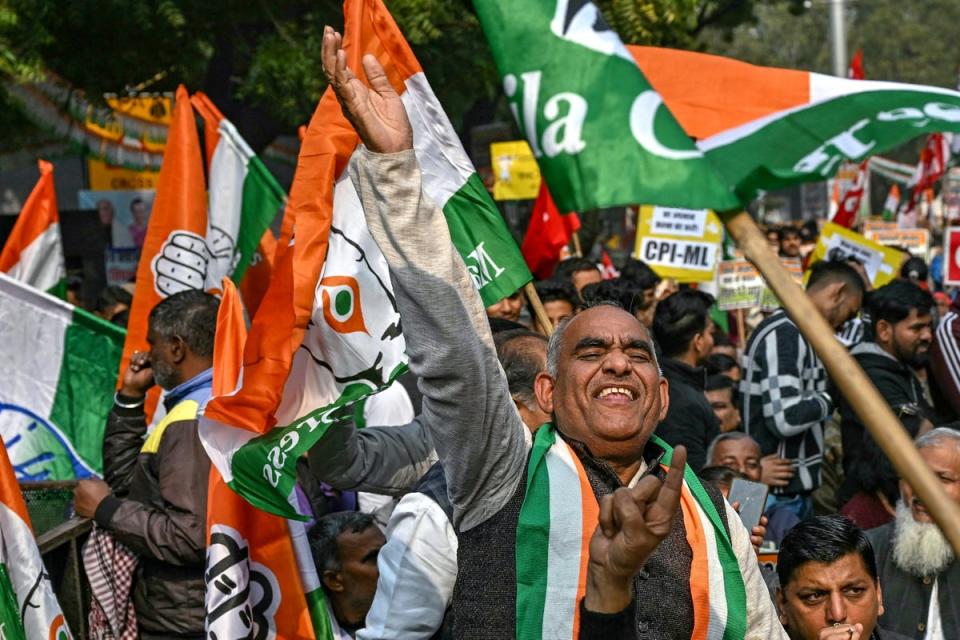
India
The world’s most populous democracy will go to the polls in the spring. Prime Minister Narendra Modi and his Hindu nationalist Bharatiya Janata Party (BJP) — the world’s biggest political party with more than 180 million members — are hoping to be elected for a third term, but this is far from a foregone conclusion. A new 28-party opposition coalition called INDIA (Indian National Developmental Inclusive Alliance) could thwart Modi's attempts.
Since he took office in 2014, India has grown from the 10th-largest economy to the fifth. While the BJP is popular in northern and central India, Modi’s authoritarian streak has drawn criticism at home and abroad after he cracked down on independent journalism, political dissidents, Kashmir and Indian Muslims.
May
Panama
Powerful opposition to a mining deal with a Canadian firm has become a fierce issue in the Central American country ahead of its May 2024 presidential election. Candidates are gunning for more state control of the mine, and the country's top court has struck down the contract. People in Panama have staged the largest protests in decades to call for the cancellation of the contract signed in October by Canada's First Quantum.
Lithuania
Presidential elections are due to be held in Lithuania on May 12, 2024, alongside a referendum on allowing multiple citizenship.
June
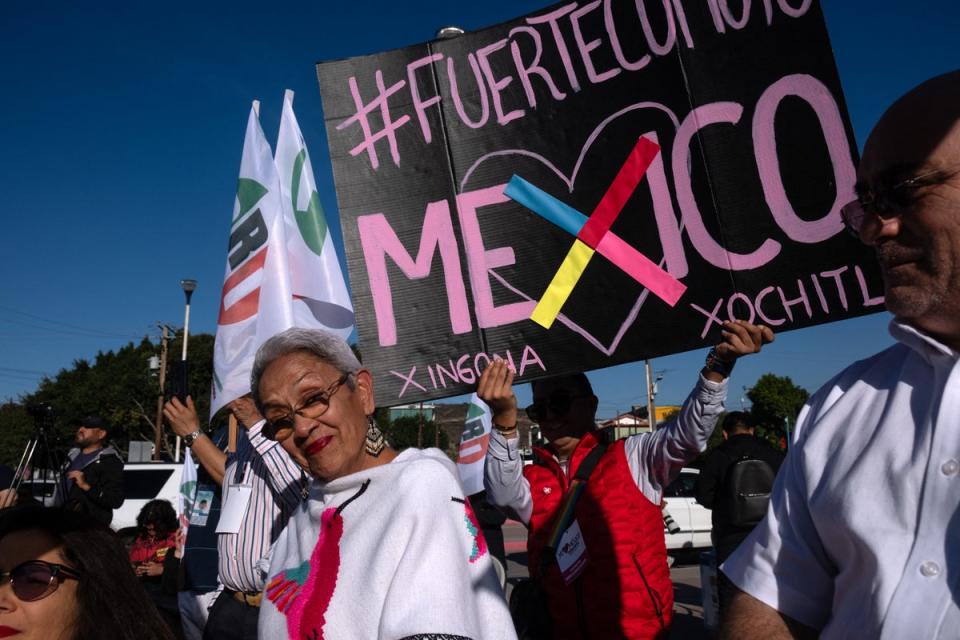
Belgium
Federal elections are scheduled to be held in Belgium on June 9, 2024. Belgium's far-right Vlaams Belang party — which wants to turn the country's northern region of Flanders into a fully independent state — is now the biggest political force. "Vlaams Belang" translates to "Flemish Interest."
The spectre of a far-right surge, to match that of the neighbouring Netherlands, remains. Geert Wilders was the surprise victor in the Dutch elections in November 2023, after his anti-EU party secured a resounding victory over his mainstream rivals.
Belgium is one of the European countries dealing with a major influx of asylum seekers. Recent research showed that the number one concern of voters in Flanders was migration.
Mexico
General elections are scheduled to be held in Mexico on June 2, 2024. The latest polling shows the races have tightened slightly, but that ruling party candidate Claudia Sheinbaum still has a massive lead over her main rival. The October-November survey by polling firm Parametria showed Sheinbaum of the leftist National Regeneration Movement (MORENA) with 52 per cent support, well ahead of Xochitl Galvez, candidate of a right-left alliance of three parties, with 25 per cent.
Iceland
Iceland's presidential election will be held on Saturday, June 1, 2024. Iceland’s previous elections in 2020 saw incumbent president Guðni Th. Jóhannesson re-elected for a second four-year term with 92 per cent of the vote. The office of president is not term-limited and therefore Jóhannesson is eligible to run for a third term but has yet to announce if he will do so.
July
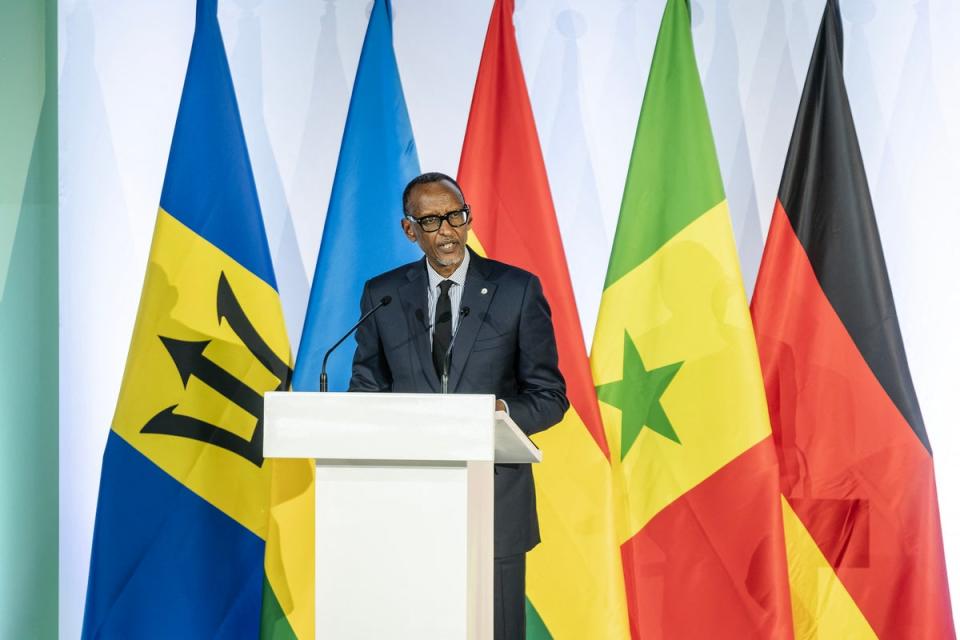
Rwanda
General elections are due to be held in Rwanda - Britain's partner in a controversial migration scheme - on July 15–16, 2024 to elect the president and members of the Chamber of Deputies. President Paul Kagame announced in September 2023 that he would stand for re-election, bidding to extend nearly a quarter of a century in power. Having assumed the presidency in 2000, Kagame, following a constitutional amendment in 2015 that adjusted term limits, remains eligible to serve for an additional decade.
The previous election in August 2017 secured Kagame another seven-year term with a reported 98.63 per cent of the vote, according to the electoral commission. However, his leadership has drawn escalating criticism from human rights organisations, citing alleged suppression of political dissent and restrictions imposed on independent media.
September
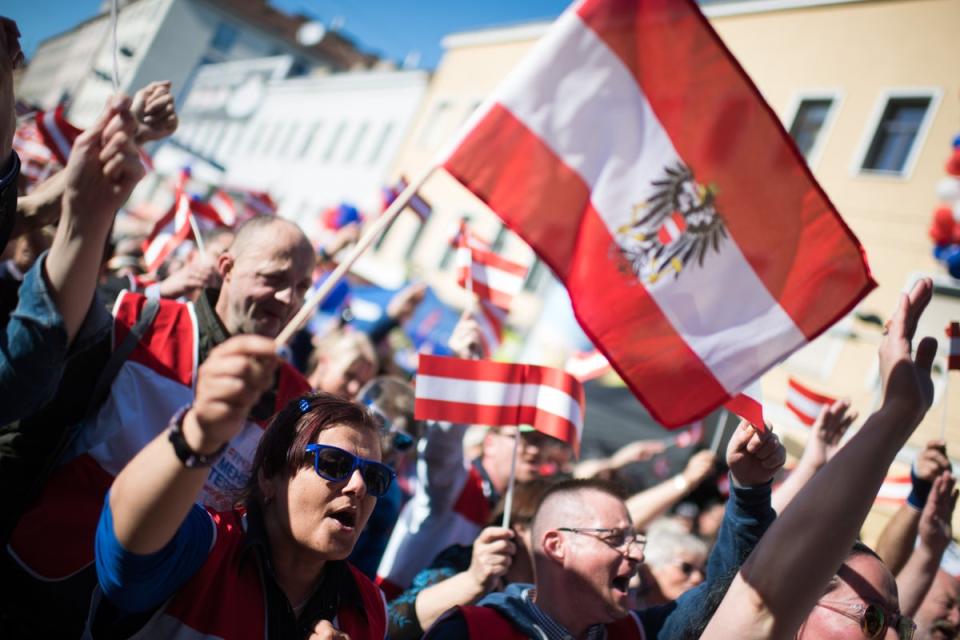
Austria
Austria could become the next EU nation to elect a right-wing, populist government when it holds its election on September 30.
In 2020, the Freedom Party of Austria (FPÖ) was polling at just 11 per cent. It is now the most popular party, after recovering from a 2019 scandal involving its leader's questionable dealings with a woman he believed was the niece of a Russian oligarch.
In regional elections in January 2023, the FPÖ finished second in the country's largest state, Lower Austria, forcing the Austrian People's Party (ÖVP) to accept a coalition. Like its counterparts in countries across Europe, the FPÖ has weaponised rising inflation and fears about migration to increase its support since last year.
Croatia
Parliamentary elections will be held in Croatia by September 22, 2024, to elect the members of the 11th Sabor (Parliament). This has resulted in 2024 being called a “super election year” in the country, which will also hold a presidential vote in December. Political analysts expect heated debate as politicians will focus on issues such as how to deal with rising costs of living amid high energy prices.
October
Mozambique
Mozambique’s October 9 elections will cover the legislature as well as provincial assemblies and governors. The gas-rich southern African country has been fighting a prolonged insurgency since 2017, which has killed thousands and disrupted multi-billion-dollar energy projects.
President Filipe Nyusi, of the Frelimo party, won elections in 2015 and 2020.
November
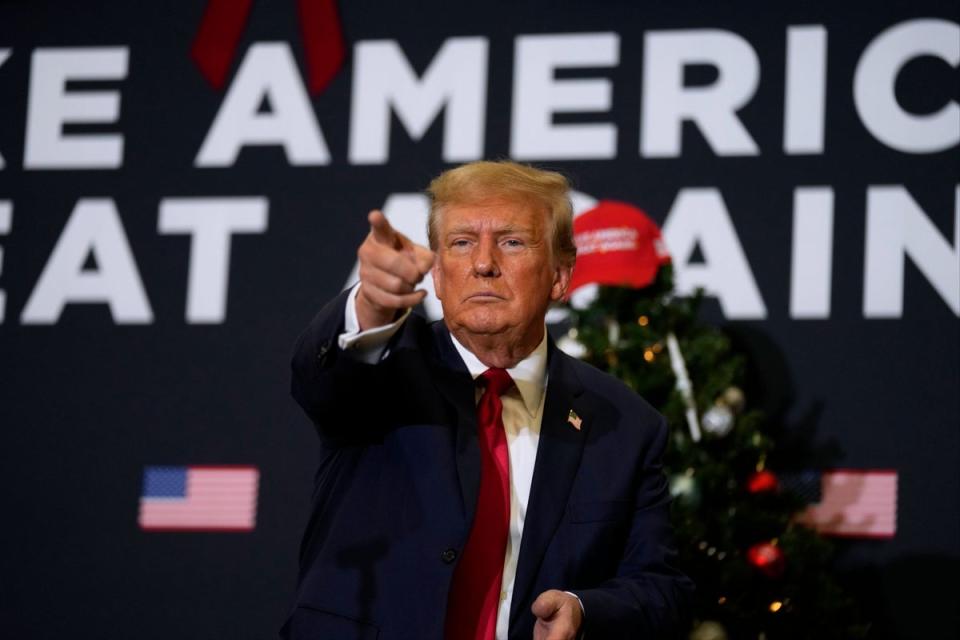
United States
The world is bracing for the 60th US presidential election on November 5. The race could produce the second president to serve two non-consecutive terms, as Donald Trump seeks a re-match against Joe Biden.
The oldest president in the country’s history, Biden, 81, is likely to face the first former US president to stand trial on criminal charges. If he wins the Republican nomination, Trump will spend some of his campaign in a courtroom. If he then secures a stunning return to power, after serving as president between 2017 and 2021, this could dramatically shift the international order with US allies from Ukraine to Taiwan looking on nervously.
Tunisia
Tunisian President Kais Saied will seek re-election on November 24, 2024, in a race that observers say will be dominated by questions about migration and the North African country's economic crisis. The small nation in the Maghreb region has frequently been praised as the only genuine triumph arising from the chaos following the regional upheavals of the Arab Spring. But in January 2023, only 11.3 per cent of the country's nearly eight million eligible voters turned out for parliamentary elections, in what was referred to as a "ghost election".
December
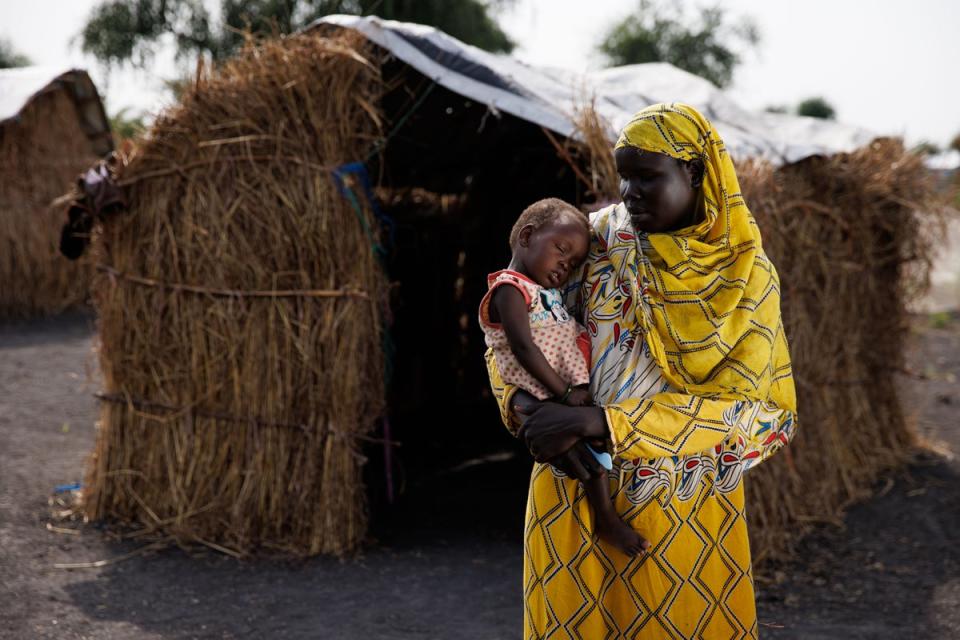
South Sudan
South Sudan, the world’s youngest country, is due to head to the polls in December. However, due to an electoral commission that has just been appointed — as well as no constitution, voter register, or demarcated constituencies — many experts doubt whether a meaningful election can proceed.
The UN Mission in December 2023 ruled that the country was “in no position to hold free, fair or secure elections”, but stressed that there was still time to catch up. The dire economic situation, compounded by climate shocks and a fragile political environment, suggests that elections will be taking place in an environment of elevated tensions.
Algeria
Amid increasing economic anxiety and political turmoil, Africa’s largest nation by area will elect a new president in December. In November 2023, President Abdelmadjid Tebboune — who has been in power for three years — dismissed Prime Minister Aymen Benabderrahmane and replaced him with the head of his Cabinet, Nadir Larbaoui. This came a few weeks after Tebboune had dismissed the head of Algeria’s powerful state-run oil company and eight of his vice presidents.
The election will be the first since the oil-rich nation’s youth-led Hirak movement led to the removal of long-time president Abdelaziz Bouteflika in 2019. That year, Tebboune won the top job by vowing to fight corruption and reinvigorate the economy. But his leadership has done little to satisfy the young people who led protests — Algeria has continued its suppression of free press, activists, and pro-democracy groups.
Ghana
The West African country is undergoing its worst economic trouble in years, and the crisis is set to dominate the election campaign before the December 2024 ballot to succeed President Nana Akufo-Addo. Ghana’s debt load has expanded and like other sub-Saharan African nations, it struggled with the economic fallout from the global pandemic and the Russia-Ukraine war.
Ghana’s ruling party has elected Vice President Mahamudu Bawumia, a former deputy central bank governor, as its candidate for the election. He will face opposition National Democratic Congress candidate and ex-president John Dramani Mahama, who accuses Bawumia of mismanaging the economy.
Date unconfirmed
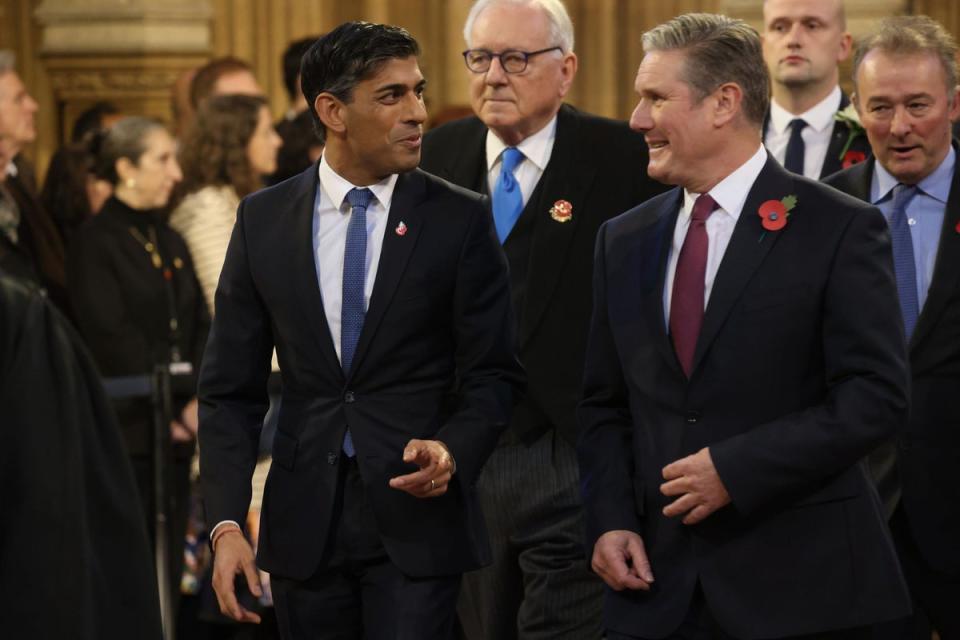
United Kingdom
Prime Minister Rishi Sunak has suggested the UK's next general election will take place in 2024 — despite having the legal right to wait until January 2025. Mr Sunak appeared to rule out a 2025 ballot to journalists attending a Downing Street event, labelling 2024 an “election year”.
One election expert warned in December that the Tories could be facing their worst result at the next general election and could be left with just 130 seats. With the party beset by infighting, Professor John Curtice said it would be “lucky to win [many] more than 200 seats” and could see an even worse result if its dire poll ratings continue.
Most pundits expect an autumn election to give as much time as possible for the economy - and Conservative poll ratings - to recover. But Sir Keir Starmer's Labour insists it is ready to fight an election in May if necessary.
South Africa
For the first time since the end of the apartheid era in 1994, Nelson Mandela’s African National Congress (ANC) could lose its overall majority in South Africa. The Democratic Alliance — a self-described “centrist” and white-led opposition party — looks likely to be the main contender. Pollsters are predicting that the ANC, in possible coalition with the leftist Economic Freedom Fighters, will just about hold on to power.
But the nation is still struggling to recover from the effects of the pandemic, as well as being blighted by high rates of crime and unemployment, a rise in xenophobic militias, and daily power cuts of up to six hours. Corruption scandals within the ANC have become commonplace, and the party’s support base is gradually eroding as the proportion of younger voters in the country increases.
Senegal
In July 2023, to the relief of millions across Senegal, President Macky Sall addressed the nation and announced he would not be running for a third term. A 2016 constitutional referendum barred presidents from serving more than two five-year terms but Sall, elected four years earlier, had long said that he would stand again.
Namibia
Namibia’s ruling party Swapo has elected Deputy Prime Minister Netumbo Nandi-Ndaitwah as its vice president, making her the frontrunner to lead the party into presidential and national elections in 2024.
Swapo has led Namibia since independence in 1990 and commands strong support from voters, paving the way for Ndaitwah to become the country’s first female head of state. While she is expected to win, it is thought that the opposition will make gains. Only one woman has been elected head of state in Africa — Ellen Johnson Sirleaf of Liberia — in 2006.
Togo
The Togolese government, led by President Faure Gnassingbé, announced in November 2023 that it planned to hold legislative and regional elections no later than the end of the first quarter of 2024. The proposed timeline pushes back the promise Gnassingbe made in December 2022 to hold polls within 12 months.
The last legislative and regional elections in 2018, were boycotted by the opposition, which criticised "irregularities" in the census. In 2024, the opposition hopes to challenge the ruling Union for the Republic (UNIR) party and has called for a surge in voter registration.
Sri Lanka
Presidential elections are scheduled to be held in Sri Lanka before September 2024, according to the constitution. President Ranil Wickremesinghe is eligible to run for a second term.
Venezuela
Officials from Venezuela's government and the opposition have reached an agreement, establishing initial steps for a meaningful upcoming presidential election. The government has committed to inviting international observers to oversee the elections, scheduled for the latter part of 2024. The 2018 election was heavily criticised for lacking fairness and freedom. While the government hasn't officially disclosed its candidate, there's widespread anticipation that President Nicolás Maduro will seek re-election.
Slovakia
Presidential elections will be held in Slovakia no later than April 2024, according to the country's constitution. President Zuzana Äaputová in June 2023 announced that she would not run for a second term.

 Yahoo News
Yahoo News 
